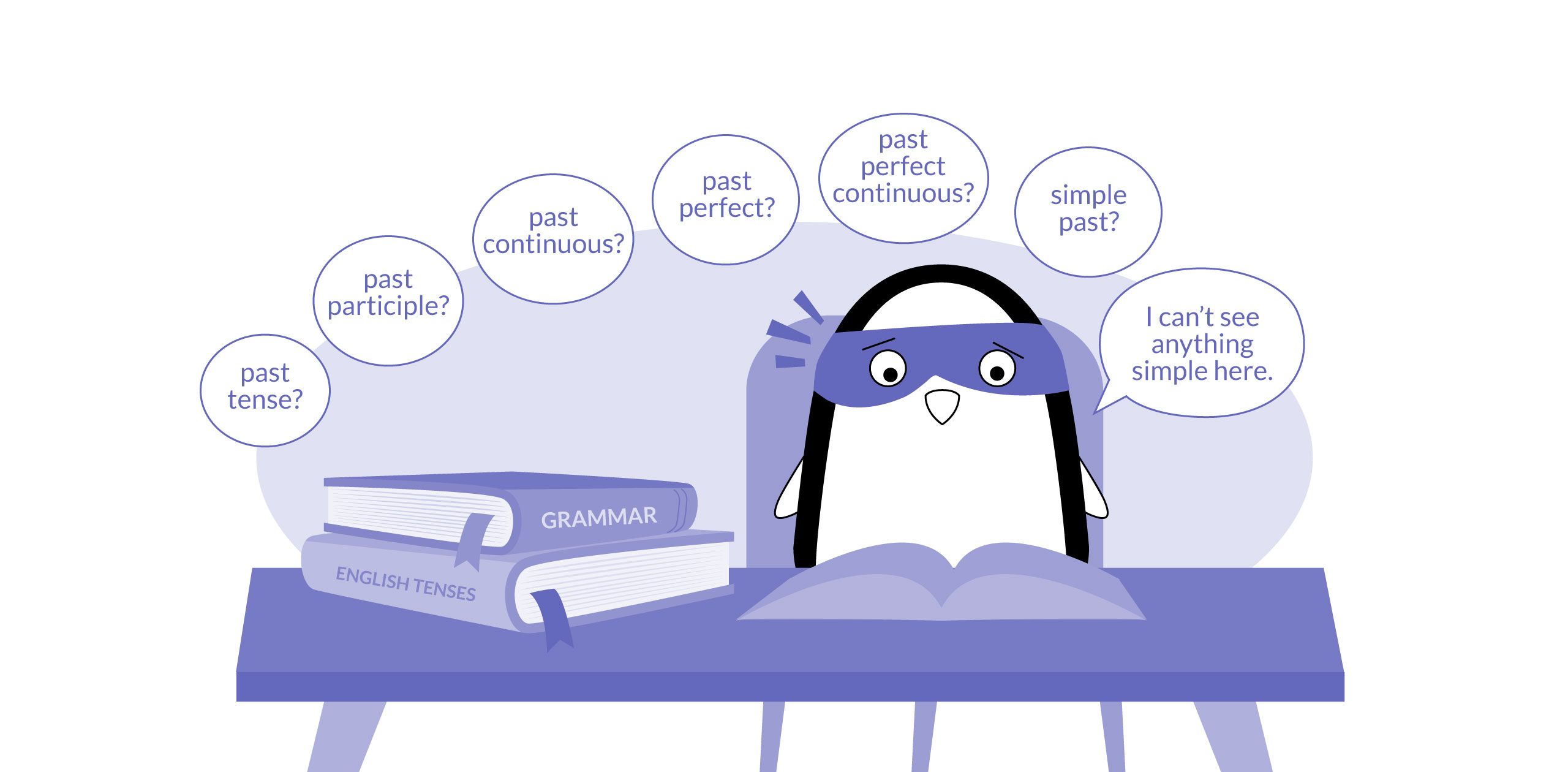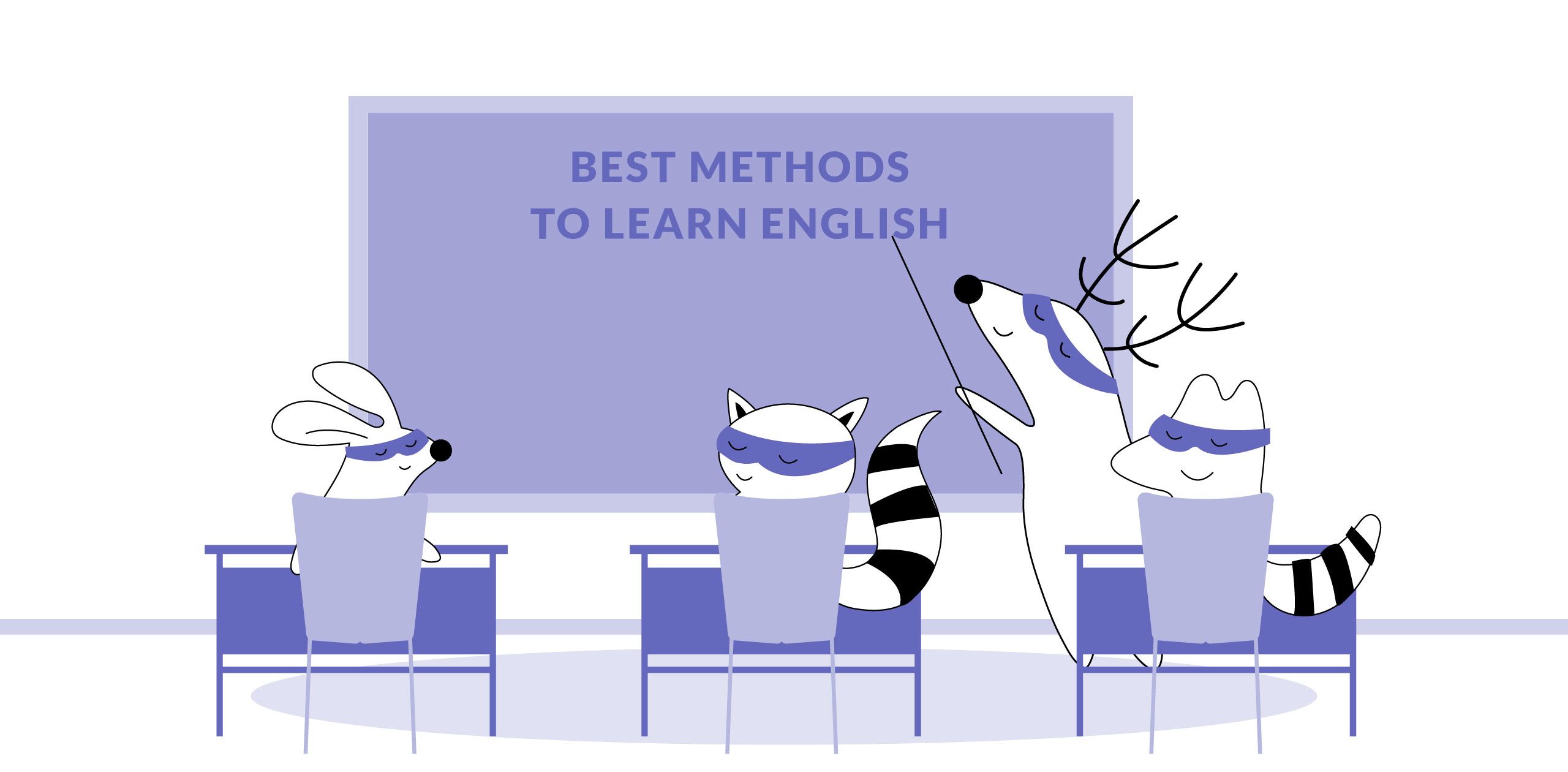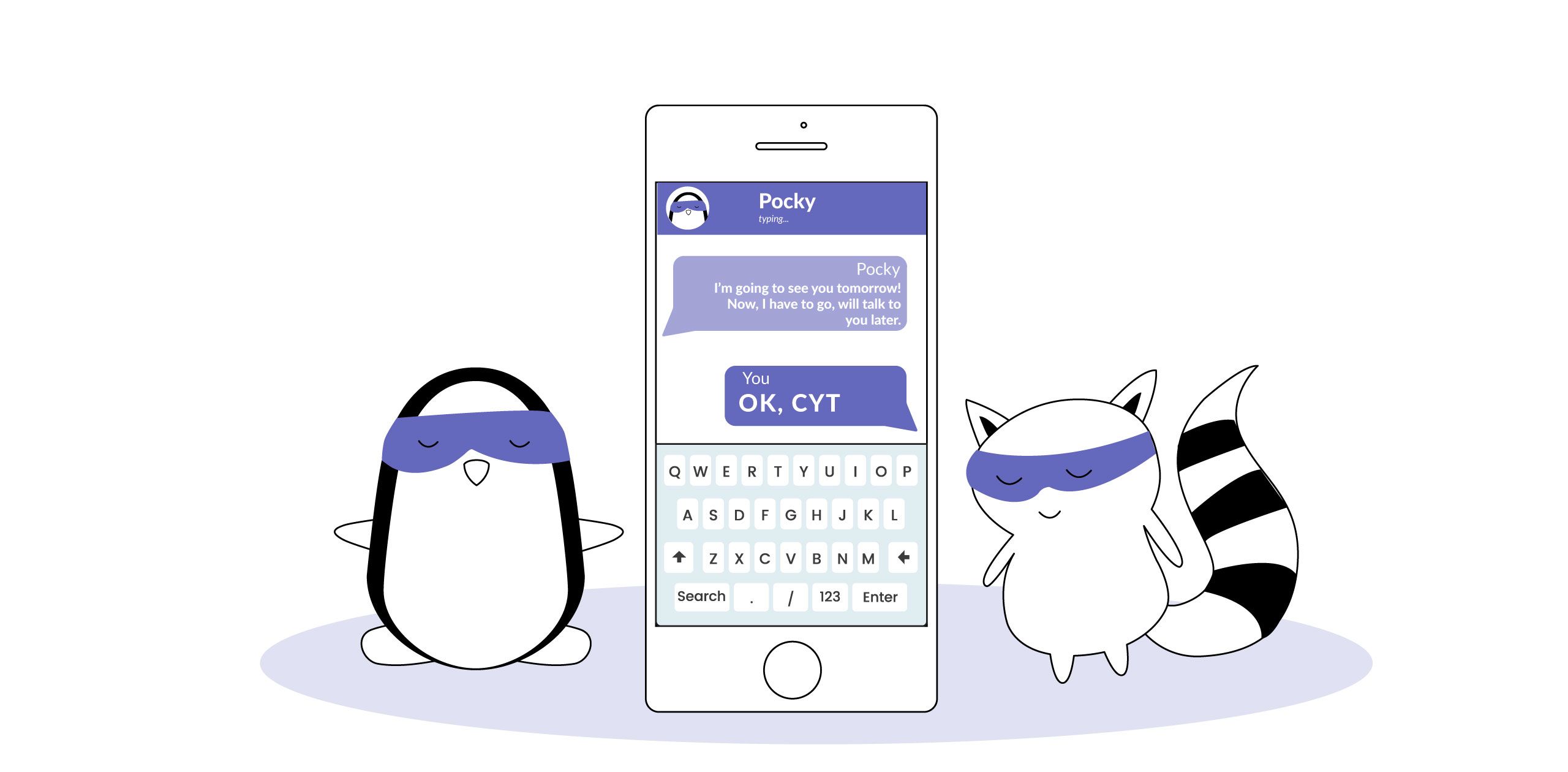
You have probably noticed that there are many things in English that you can separate into casual and formal: clothing, events, and even relationships. Conversations are no exception.
Every English learner should master different communication styles with other people to be able to hold conversations of different levels of importance — and with people of different levels of familiarity.
You need to keep proper expressions in mind to be able to use them depending on the situation. Sometimes, just a few words are all it takes to turn the conversation in a completely different direction. Choosing the right ones at the right time will allow you to show yourself as a professional at all times.
Below, you will find a step-by-step guide to maintaining a formal conversation in English, along with helpful tips. Let's begin!
Learn English with Langster
Formal Greetings
Any conversation begins with a greeting. Formal greetings in English are appropriate when you communicate with colleagues, business partners, as well as people you meet for the first time.
When meeting new people, you need to find out the person's name, give your name in response, and say that you are pleased to meet them.
Here is a set of phrases for a formal greeting:
| Hello! How have you been? |
| Good morning! Good afternoon! Good evening! |
| I am glad to see you. I am happy to see you. I am pleased to see you. |
| Good to see you again. Nice to see you again. |
| My name is Sarah. It is a pleasure to meet you! What is your name? |
| Hello! How have you been? |
| Good morning! Good afternoon! Good evening! |
| I am glad to see you. I am happy to see you. I am pleased to see you. |
| Good to see you again. Nice to see you again. |
| My name is Sarah. It is a pleasure to meet you! What is your name? |
Possible responses to the formal greeting:
| Fine, thanks, and you? |
| Fine, thanks, what about yourself? |
| Very well, thanks. |
| Pretty good, thanks. |
| Fine, thanks, and you? |
| Fine, thanks, what about yourself? |
| Very well, thanks. |
| Pretty good, thanks. |
Make sure to check our post about the difference between "How are you?" and "How are you doing?" to find out which one is suitable for the business environment and which one to use in less formal settings.
If you did not hear what the other person said, ask them to repeat using one of the phrases:
| Sorry? |
| Pardon? |
| Could you repeat, please? |
| Sorry? |
| Pardon? |
| Could you repeat, please? |
Conversation Starters
After you have greeted the person, you need to continue the conversation. When talking to a friend, you are likely to quickly find a topic of conversation. However, if you have just met a person at an official event, it is necessary to establish contact between you and your new acquaintance.
We've already discussed the basic rules for running a small talk in the previous article. Although they refer to more casual chatting, they are also applicable to a given setting, so make sure to check them as well.
At a formal event (contrasting small talk or everyday conversations), you can use the following phrases to start a formal conversation in English:
| I've heard so much about you. |
| How do you like the conference? Is it your first time at the workshop? |
| So, you work in PR, right? Have you always been in PR? How long have you been working for this firm? |
| I am from Greece. And you? |
| How do you like it here? How long have you been here? |
| How are you? How are you doing? How are things? How have you been? How's your day going so far? How's it going? |
| This is my first visit to London. What do you recommend visiting while I am here? |
| I've heard so much about you. |
| How do you like the conference? Is it your first time at the workshop? |
| So, you work in PR, right? Have you always been in PR? How long have you been working for this firm? |
| I am from Greece. And you? |
| How do you like it here? How long have you been here? |
| How are you? How are you doing? How are things? How have you been? How's your day going so far? How's it going? |
| This is my first visit to London. What do you recommend visiting while I am here? |

Phrases to Express Your Opinion
Once you have the person’s attention, it is important to be able to keep the conversation going. Most likely, your new acquaintance will ask a question or will be interested in your point of view on a topic. To answer them, you need to know how to express your opinion in a polite manner.
Here are several phases suitable for both formal and casual speech:
| In my opinion... In my experience... |
| The way I see it... From my point of view... |
| It seems to me that... To my mind... What I mean is... |
| As far as I'm concerned... |
| To tell the truth... Frankly speaking... |
| If you ask me... Personally, I think... Speaking for myself... |
| I'd say that... I'd suggest that... I'd like to point out that... |
| I believe that... I guess that... |
| My opinion is that... I hold the opinion that... |
| It goes without saying that... |
| In my opinion... In my experience... |
| The way I see it... From my point of view... |
| It seems to me that... To my mind... What I mean is... |
| As far as I'm concerned... |
| To tell the truth... Frankly speaking... |
| If you ask me... Personally, I think... Speaking for myself... |
| I'd say that... I'd suggest that... I'd like to point out that... |
| I believe that... I guess that... |
| My opinion is that... I hold the opinion that... |
| It goes without saying that... |
At an official event, try to formulate your thoughts more carefully and less emotionally than when communicating with friends. For example:
| It is thought that… It is considered... |
| Some people say that... |
| It is generally accepted that... |
| It is thought that… It is considered... |
| Some people say that... |
| It is generally accepted that... |
Phrases to Express Agreement or Disagreement
First of all, let's figure out how you can agree with someone in English.
All the phrases listed below are appropriate in both formal and informal settings. They are neutral: if you are at a business event or a meeting, say them in a calm tone, and at a party with friends, you can get a little bit emotional.
Choose a phrase to agree with the person in a proper way:
| I agree with you entirely. I totally agree with you. I agree with you one hundred percent. I couldn't agree more. |
| You're absolutely right. |
| Absolutely. Exactly. No doubt about it. |
| I suppose so. I guess so. |
| I was just going to say that. This is exactly what I think. |
| I am of the same opinion. |
| I agree with you entirely. I totally agree with you. I agree with you one hundred percent. I couldn't agree more. |
| You're absolutely right. |
| Absolutely. Exactly. No doubt about it. |
| I suppose so. I guess so. |
| I was just going to say that. This is exactly what I think. |
| I am of the same opinion. |
When you want to express disagreement in a professional context, you need to be very polite to avoid offending the other person, especially if you have just met them or are at an official event.
We recommend using the following expressions of disagreement in a formal English conversation:
| I'm afraid I have to disagree. I beg to differ. That's not really how I see it, I'm afraid. I'm sorry to disagree with you, but... |
| Yes, but don't you think... I agree to some extent, but... On the whole, I agree with you, but... True enough, but... |
| Not necessarily. On the contrary... The problem is that... I doubt whether... |
| No, I am not so sure about that. No, I disagree. What about... I am of a different opinion because... |
| With all due respect... |
| I see what you mean, but have you thought about... I hear what you are saying, but... I see your point, but... |
| I'm afraid I have to disagree. I beg to differ. That's not really how I see it, I'm afraid. I'm sorry to disagree with you, but... |
| Yes, but don't you think... I agree to some extent, but... On the whole, I agree with you, but... True enough, but... |
| Not necessarily. On the contrary... The problem is that... I doubt whether... |
| No, I am not so sure about that. No, I disagree. What about... I am of a different opinion because... |
| With all due respect... |
| I see what you mean, but have you thought about... I hear what you are saying, but... I see your point, but... |
How to (Politely) Interrupt a Person Speaking
Interrupting someone without offending them is a real skill. Of course, it is important to note that you should not interrupt the speaker and wait until they are finished to express your opinion.
However, if it's necessary to intervene in the conversation, make sure to say "Excuse me!" first and then use one of the following examples:
| Excuse me for interrupting, but… I apologize for interrupting... Sorry to interrupt, but... |
| Can I say something here? If I might add something... Can I just mention something? |
| Do you mind if I come in here? |
| Before you move on, I'd like to say something. |
| Excuse me for interrupting, but… I apologize for interrupting... Sorry to interrupt, but... |
| Can I say something here? If I might add something... Can I just mention something? |
| Do you mind if I come in here? |
| Before you move on, I'd like to say something. |
After you have expressed your opinion, do not forget to pass the word back to the person. To do this, you can say:
| Sorry, go ahead. |
| Sorry, you were saying... |
| Sorry, go ahead. |
| Sorry, you were saying... |
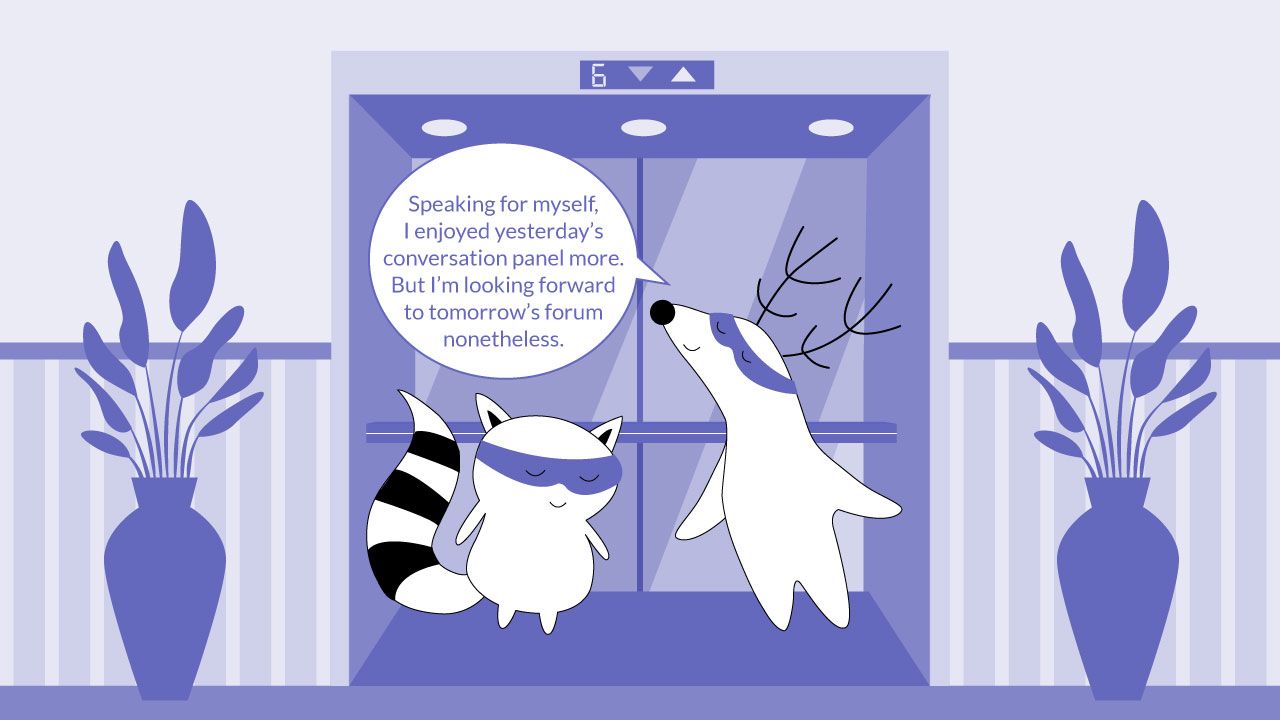
How to Say Goodbye Formally
After the conversation, you need to say goodbye to your new acquaintance. Of course, the standard "Goodbye!" is suitable for almost any given setting. However, you can say goodbye with other phrases as well.
Here is a list of expressions for ending a formal conversation in English:
| Have a good day! Have a good night! |
| I look forward to our next meeting. |
| It was nice to meet you. |
| Have a good day! Have a good night! |
| I look forward to our next meeting. |
| It was nice to meet you. |
Additional Tips
As you already know, the formal style is used in an official setting — when communicating at conferences and presentations, conducting business negotiations, writing documents, corporate emails, and scientific articles.
You should follow several rules to make the speech sound formal:
Avoid Using Contractions
In formal writing, there is no place for contractions like “I'm,” “I'd,” or “I don't.” Instead, use the complete forms of the words: “I am,” “I would,” and “I do not.”
Moreover, the use of contractions is one of the primary reasons for the most common misspellings — for example, confusing "their" and "they're."
Misspellings can hurt the initial meaning of a sentence and make you look unprofessional.
What Does “Duly Noted” Mean?
Speaking of misspellings, let's take a closer look at the formal go-to phrase "duly noted," which means that something is properly recorded or taken into proper consideration, i.e., in strict accordance with requirements. The word “duly” alone means something is done in a due manner or time, e.g., “duly elected” or “duly apologized.”
Its common misspellings include "dually noted," "dully noted," and "duelly noted." "Dually" means a double capacity, while "dully" means something is done in a boring manner. And if you’ll ever see “duelly noted” written, just know it's an incorrect spelling of “duly noted.”
Is “Duly Noted” Rude?
When spelled correctly, you can use "duly noted" in a formal speech in the meaning of simple acknowledgment of an opinion or action. That's why you also don't want to confuse the word "duly" with "dully" — to avoid letting someone know you barely consider what they're saying.
Moreover, "duly noted" can also be used sarcastically, meaning that something is heard and ignored rather than taken into appropriate consideration. It’s not necessarily rude, but you should pay close attention to the context in which you use the phrase "duly noted."

Avoid Using Slang and Phrasal Verbs
When holding a formal conversation, there are a few things you should avoid to make it sound appropriate. Some of these things include:
- Avoiding slang and colloquial expressions. This point is pretty obvious: it is difficult to imagine a business partner who calls you "bro."If you want to ask how the representative of the partner company is doing, it is unlikely that you will say, "What's up?" And in response, you will not receive the colloquial "Yourself?" but a polite "Thank you, very well."
- Avoiding phrasal verbs. Phrasal verbs should be replaced by regular ones. For example, in an official setting, you are unlikely to hear "the inflation rate went up." Instead, it would be better to say "the inflation rate increased." In addition, avoiding phrasal verbs reduces your chances of making mistakes because they can be very confusing for non-native speakers.
Use the Passive Voice
The formal English language uses not only long phrases but also complex grammatical constructions. If you have started to express an idea, make sure to develop it, support it with clear arguments, justify it and bring it to a conclusion.
In addition, formal emails and oral speech allow you to use the passive voice much more often than in casual conversation, as it is more suitable for an official setting. The reason is that the active voice personifies speech, while the passive voice has a more formal connotation, compare:
- You are invited to the conference.
- We invite you to the conference.
As you can see, the first option sounds more discreet and respectful.
If you want to speak formally, do not forget to use complex sentence structures (for example, independent clause + at least one adverbial phrase), participial phrases, conditional sentences, etc.
Use Special Terminology
Each industry has its own specifics, so try to use the appropriate jargon or vocabulary. For example, if you work for an accounting firm and check the financial statements of a business, it would be appropriate to say "audit" instead of "check."
Try to use specific, industry-related words in an official setting and business correspondence — your English speaking skills will not only benefit from this, but the person you’re speaking to will also be pleasantly surprised.
Avoid Speaking for Yourself
If you are writing a business letter or conducting business negotiations, try to avoid expressions such as "I think" and "in my opinion."
As a rule, you should speak on behalf of the company you work for — talk less about yourself and your personal opinion, and contact business partners as a representative of the company.
Here are the example sentences:
| We are pleased to receive your offer. Can we discuss this in further detail? |
| It's a contribution duly noted by the board of directors, and we are looking forward to taking our partnership to the next level. |
| If you need any additional information, do not hesitate to contact us. |
| We are pleased to receive your offer. Can we discuss this in further detail? |
| It's a contribution duly noted by the board of directors, and we are looking forward to taking our partnership to the next level. |
| If you need any additional information, do not hesitate to contact us. |
Be Discreet and Inclusive
Last but not least. Formal speech is an example of ethical, respectful, and inclusive communication. Choose your words carefully to avoid offending the people you’re addressing.
To write and speak inclusively, make sure to follow these principles:
- Use gender-neutral language and pronouns, such as the singular "they."
- Avoid gendered group language, such as "you guys."
- Avoid stereotyping and making neither positive nor negative generalizations.
- Avoid making assumptions regarding anyone’s sexuality or relationship status.
- Avoid outdated language.
- If you're not sure about something, ask!
The Bottom Line
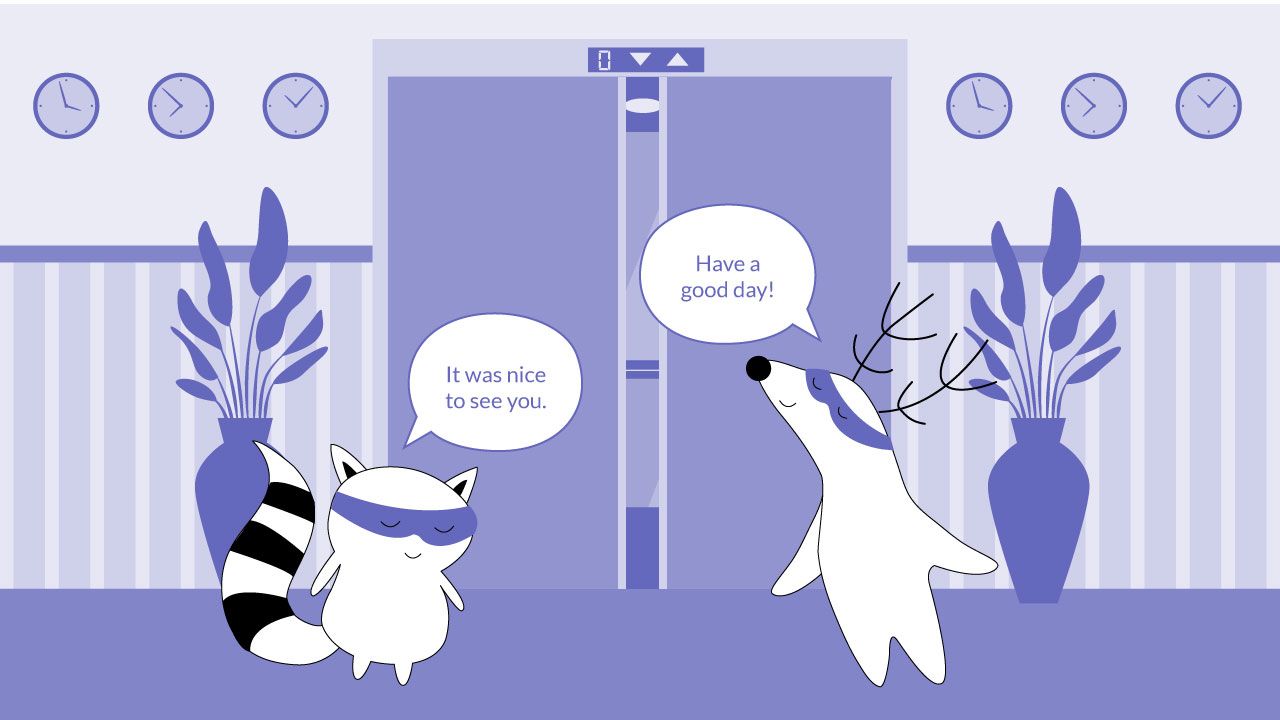
As you can see, to maintain a formal conversation in the English language, you need to learn some common phrases that will help you start a conversation, and you’ll need to be careful with your choice of words. Fortunately, you don't have to memorize all the examples mentioned in this article — you can revisit it as frequently as you need to.
Furthermore, with practice, you will learn a lot of additional expressions from native English speakers and boost your English vocabulary.
If you're interested in expanding your vocabulary and picking proper phrasing, you can download our Langster app. It is full of bite-sized stories with grammar explanations for each, which will allow you to enjoy your English learning experience even more. See for yourself:
Learn English with Langster







